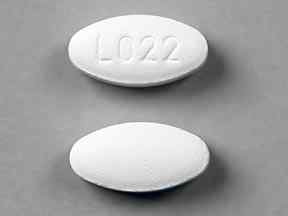Cimetidine Interactions
There are 493 drugs known to interact with cimetidine, along with 4 disease interactions, and 3 alcohol/food interactions. Of the total drug interactions, 43 are major, 298 are moderate, and 152 are minor.
- View all 493 medications that may interact with cimetidine
- View cimetidine alcohol/food interactions (3)
- View cimetidine disease interactions (4)
Most frequently checked interactions
View interaction reports for cimetidine and the medicines listed below.
- Adderall (amphetamine / dextroamphetamine)
- Allegra (fexofenadine)
- Ambien (zolpidem)
- Aspirin Low Strength (aspirin)
- Augmentin (amoxicillin / clavulanate)
- Benadryl (diphenhydramine)
- Celebrex (celecoxib)
- Claritin (loratadine)
- CoQ10 (ubiquinone)
- Cymbalta (duloxetine)
- Fish Oil (omega-3 polyunsaturated fatty acids)
- Flexeril (cyclobenzaprine)
- Flonase (fluticasone nasal)
- Lyrica (pregabalin)
- Metoprolol Succinate ER (metoprolol)
- MiraLAX (polyethylene glycol 3350)
- Mucinex (guaifenesin)
- Nexium (esomeprazole)
- Paracetamol (acetaminophen)
- Prilosec (omeprazole)
- Probiotic Formula (bifidobacterium infantis / lactobacillus acidophilus)
- Quercetin (bioflavonoids)
- Singulair (montelukast)
- Tylenol (acetaminophen)
- Vitamin B12 (cyanocobalamin)
- Vitamin C (ascorbic acid)
- Vitamin D3 (cholecalciferol)
- Xanax (alprazolam)
- Zofran (ondansetron)
- Zyrtec (cetirizine)
Cimetidine alcohol/food interactions
There are 3 alcohol/food interactions with cimetidine.
Cimetidine disease interactions
There are 4 disease interactions with cimetidine which include:
More about cimetidine
- cimetidine consumer information
- Compare alternatives
- Pricing & coupons
- Reviews (22)
- Drug images
- Side effects
- Dosage information
- During pregnancy
- Drug class: H2 antagonists
- Breastfeeding
- En español
Related treatment guides
Drug Interaction Classification
| Highly clinically significant. Avoid combinations; the risk of the interaction outweighs the benefit. | |
| Moderately clinically significant. Usually avoid combinations; use it only under special circumstances. | |
| Minimally clinically significant. Minimize risk; assess risk and consider an alternative drug, take steps to circumvent the interaction risk and/or institute a monitoring plan. | |
| No interaction information available. |
See also:
Further information
Always consult your healthcare provider to ensure the information displayed on this page applies to your personal circumstances.


